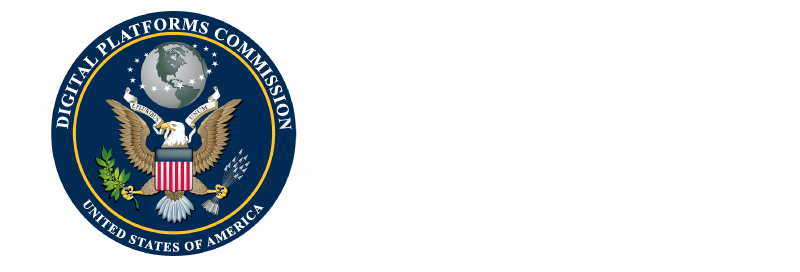Regulations
Regulations – Digital Platforms Commission (DPC)
Ensuring Integrity, Safety, and Fairness in the Digital Age
The Digital Platforms Commission (DPC) has established a comprehensive regulatory framework that defines how digital platforms must operate to protect users, foster transparency, and ensure long-term trust in online services. These regulations form the backbone of the DPC Certification Program and are rooted in public safety, ethical innovation, and the protection of civil liberties.
Our regulatory standards are built upon 13 core compliance pillars, each addressing a critical area of digital platform operations. Platforms must adhere to all 13 pillars to obtain and maintain DPC certification.

The 13 Pillars of Compliance
Content Governance & Moderation
Platforms must develop and enforce clear community standards. They are required to have effective mechanisms for identifying, flagging, reviewing, and removing harmful or illegal content, including hate speech, harassment, violent extremism, and misinformation. Fair appeal processes must also be in place.
Data Privacy & Consent
Digital services must comply with all federal and international privacy laws, including GDPR and CCPA. Users must be informed of data collection, consent options, and the ability to access, modify, or delete their personal data. All data must be encrypted and securely stored.
Ad Transparency
All advertising must be clearly labeled. Platforms must disclose targeting methods, maintain public political ad libraries, and allow users to opt out of behavioral targeting. Sponsored content must include clear disclaimers.
Algorithm Accountability
Recommendation systems, search engines, and feed algorithms must be auditable. Platforms should disclose how major algorithms work, assess bias or harmful outcomes, and allow users to switch to non-algorithmic feeds.
AI & Bot Disclosure
All AI-generated content and automated interactions must be labeled. Chatbots, deepfakes, and AI-driven content moderation tools must be publicly disclosed. Users should know when they’re interacting with non-human systems.
Children & Youth Protection
Platforms must implement COPPA-compliant protections for users under 18. This includes restricted data collection, ad targeting limits, robust content filters, and age-appropriate UI/UX design. Parental controls and youth-friendly reporting systems are required.
Cybersecurity Measures
Platforms must use best-in-class cybersecurity standards, including regular penetration testing, breach detection systems, and end-to-end encryption. Security incidents must be reported within 72 hours to the DPC and affected users.
Digital Consumer Protection
Dark patterns, deceptive design practices, auto-renewal traps, and fraudulent transactions are prohibited. Platforms must ensure fair dispute resolution, user refunds, and transparent terms of service.
Access Equity & ADA Compliance
Digital services must be accessible to users with disabilities. This includes compatibility with assistive technologies, captions on media, alt-text on images, and compliance with WCAG 2.2 standards. Platforms should also support multiple languages and inclusive content moderation.
Internal Whistleblower Systems
Organizations must implement confidential whistleblower mechanisms allowing employees to report ethical or legal violations without fear of retaliation. Platforms must report the number of whistleblower complaints and resolutions annually.
Misinformation Response Protocols
Platforms must work with verified fact-checkers and public health/election authorities to respond to dangerous misinformation. Systems must be in place to downrank, label, or remove false content rapidly during public crises.
User Rights & Control Systems
Every user must have access to a rights dashboard, including content appeals, privacy controls, ad preferences, and data portability/export tools. Account suspension or removal must include due process notifications and appeals.
Internal Audit & Transparency Reporting
Platforms are required to conduct annual self-audits and submit a compliance report to the DPC. These reports must include data governance practices, enforcement statistics, AI system changes, and risk assessments.
Regulation Enforcement Tools
In cases of non-compliance, the DPC may enact any of the following:
- Civil fines up to $250,000 per violation
- Public listing as a non-compliant platform
- Seizure of platform domains through U.S.-based registrars
- Suspension of cloud hosting and payment processing
- Federal investigations in partnership with DOJ, DHS, and FCC
The DPC prioritizes correction, not punishment — but platforms that repeatedly endanger public safety or evade oversight will face escalating penalties.
Keeping Up with Change
Technology evolves fast. That’s why the DPC holds quarterly review sessions to update our standards in response to emerging tech like generative AI, VR/AR platforms, decentralized networks, and biometric systems.
Public comment is invited on all regulatory updates, and stakeholder engagement sessions are held every 6 months to ensure our framework remains adaptive and inclusive.
 An Official Website of the United States Government
An Official Website of the United States Government 
